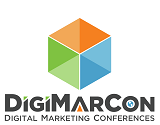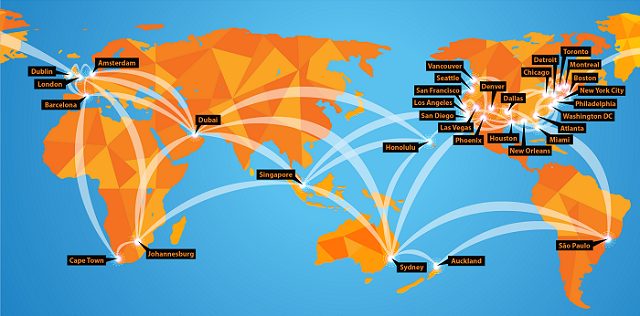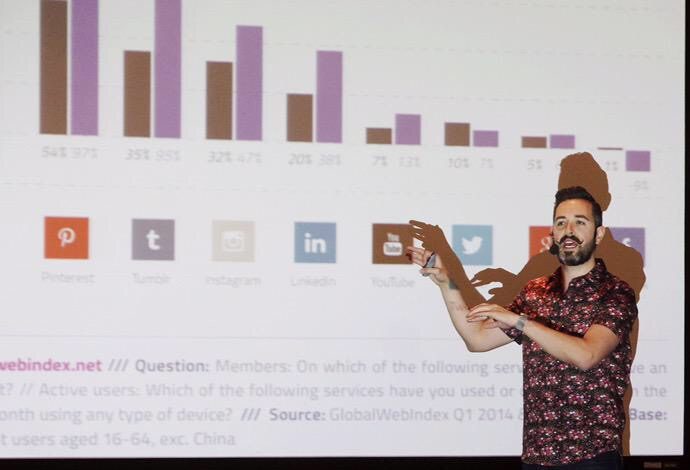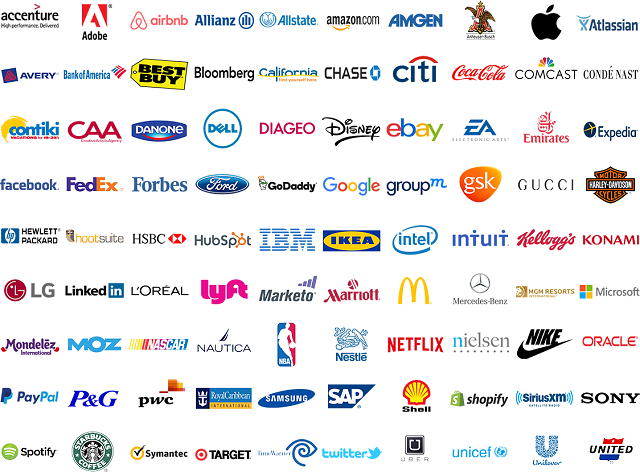What Should a B2B Marketing Strategy Include?
A well-rounded B2B marketing strategy is essential for businesses aiming to connect with other companies, generate leads, and establish long-term partnerships. For those looking to refine their approach, attending a digital marketing conference or implementing a robust b2b event marketing strategy can provide valuable insights. This guide explores the key components, strategies, and ideas that make a B2B marketing strategy effective and innovative.
What Should a B2B Marketing Strategy Include?
An effective B2B marketing strategy should include a mix of core elements tailored to meet the needs of your target audience. Here are the fundamental components:
1. Clear Target Audience Definition
Understanding your audience is the foundation of any B2B marketing strategy. Developing detailed buyer personas allows you to craft messages and solutions that resonate with your target market. According to HubSpot, companies that use buyer personas see a 171% increase in marketing-generated revenue.
2. Content Marketing
B2B buyers often conduct extensive research before making decisions. Providing high-quality, informative content such as blogs, whitepapers, and case studies positions your brand as an authority and helps nurture leads. DigiMarCon attendees have noted how events like these inspire better content strategies:
“DigiMarCon opened our eyes to how impactful storytelling and data-backed content can be in connecting with our B2B audience.” – Event Attendee
3. Account-Based Marketing (ABM)
ABM focuses on tailoring marketing efforts to specific high-value accounts. This strategy aligns marketing and sales teams to deliver personalized experiences that drive conversions. Research by ITSMA shows that 87% of marketers say ABM delivers higher ROI than other marketing strategies.
4. Data-Driven Decisions
Utilizing analytics tools to track performance and gain insights into customer behavior ensures your campaigns are continuously optimized for success. Real-time dashboards and AI-driven analytics are becoming standard practices for effective B2B strategies.
5. Event Marketing
In-person and virtual events remain critical for networking and showcasing your offerings. Implementing an effective b2b event marketing strategy ensures your brand stands out at conferences and trade shows. Events like DigiMarCon offer unparalleled opportunities to connect with decision-makers and industry leaders.
What Are B2B Marketing Strategies?
B2B marketing strategies refer to the specific tactics businesses use to promote their products or services to other companies. Below are some proven and innovative B2B marketing strategies that drive success:
- Email Marketing: A cost-effective way to nurture leads and keep prospects engaged with personalized campaigns. Statistics from Campaign Monitor show that segmented email campaigns achieve a 760% increase in revenue.
- Social Media for B2B: Platforms like LinkedIn are vital for building professional relationships and establishing thought leadership. Case in point: LinkedIn reports that 80% of B2B leads generated through social media come from their platform.
- SEO and Paid Search: Ensuring your brand is discoverable online is critical. Combine organic search optimization with targeted PPC campaigns for maximum reach.
- Referral Programs: Leverage existing client relationships to expand your network through recommendations, a strategy that Deloitte highlights as a key driver of B2B trust and growth.
For inspiration, consider b2b marketing strategy examples like HubSpot’s educational content marketing campaigns or Salesforce’s use of flagship events like Dreamforce to showcase its solutions and engage directly with customers.
What Are the Four Types of B2B Marketing?
B2B marketing encompasses a range of approaches, but it can generally be categorized into four main types:
1. Product-Oriented Marketing
Focuses on highlighting the features and benefits of your product. This approach is especially effective for tech and SaaS companies showcasing innovative solutions.
2. Customer-Oriented Marketing
Centers on understanding and addressing the specific needs of your clients. Personalized solutions and exceptional customer service are key to this strategy.
3. Industry-Oriented Marketing
Targets specific industries or verticals, tailoring messaging and campaigns to meet their unique challenges. For example, DigiMarCon’s industry-focused sessions have been praised for helping businesses adapt their strategies to niche markets.
4. Brand-Oriented Marketing
Aims to build brand awareness and credibility through storytelling, thought leadership, and consistent messaging across all channels. Brands like GE and Microsoft have mastered this by aligning their marketing efforts with their broader missions.
Combining these types allows you to create a comprehensive and flexible b2b marketing strategy for 2025 that adapts to market trends and emerging challenges.
Take Your B2B Marketing Strategy to the Next Level
Crafting an effective B2B marketing strategy requires a blend of creativity, data-driven decision-making, and a deep understanding of your audience. From leveraging events to implementing B2B marketing ideas, each element contributes to a cohesive plan that drives results. Ready to elevate your marketing efforts? Register today for DigiMarCon and gain access to the latest strategies and tools for B2B success.
Articles
- Best Marketing Conference Sponsorship
- What Does it Mean to Be an Exhibitor at a Conference?
- What Is the Biggest Social Media Conference?
- What Is an Innovation Conference?
- What Is a Typical B2B Event?
- What Are the Cloud Technology Events in 2025?
- Marketing Event Volunteer Opportunities: A Comprehensive Guide
- Digital Marketing Event Volunteer Opportunities Near Me
- What Does a Volunteer Do at a Conference?
- Is DigiMarCon Worth It?
- Is DigiMarCon Good?
- What is the Biggest Marketing Forum?
- What are Digital Marketing Conferences?
- Marketing Conference Exhibiting: Your Guide to Success
- Digital Summit Comparison: A Closer Look at DigiMarCon
- Digital Marketing Conference
- Digital Marketing Events: Your Guide to Success in 2025
- Marketing Conferences: Unlocking Your Business Potential in 2025
- What Is The Future of Digital Marketing in 2030?
- B2B Event Marketing Strategy: Unlocking Success For Your Business
- Why B2B Event Marketing?
- What Should a B2B Marketing Strategy Include?
- Top Marketing Conferences for 2025
- What Is the Future of Marketing in 2025?
Digital Marketing Conferences
- NORTH AMERICA
- DigiMarCon Cruise
(New Orleans, LA, USA) - DigiMarCon West
(Los Angeles, CA, USA) - DigiMarCon Northwest
(Seattle, WA, USA) - DigiMarCon Canada West
(Vancouver, BC, USA) - DigiMarCon Canada
(Toronto, ON, Canada) - DigiMarCon Canada East
(Montreal, QC, Canada) - DigiMarCon Florida
(Orlando, FL, USA) - DigiMarCon Gulf Coast
(Houston, TX, USA) - DigiMarCon Southern California
(San Diego, CA, USA) - DigiMarCon Midwest
(Chicago, IL, USA) - DigiMarCon Mid-South
(Nashville, TN, USA) - DigiMarCon Great Lakes
(Detroit, MI, USA) - DigiMarCon North
(Minneapolis, MN, USA) - DigiMarCon Central
(Kansas City, MO, USA) - DigiMarCon Texas
(Dallas, TX, USA) - DigiMarCon New England
(Boston, MA, USA) - DigiMarCon Mid-Atlantic
(Philadelphia, PA, USA) - DigiMarCon South Florida
(Miami, FL, USA) - DigiMarCon Southeast
(Atlanta, GA, USA) - DigiMarCon Central Florida
(Tampa, FL, USA) - DigiMarCon East
(New York, NY, USA) - DigiMarCon South Atlantic
(Charlotte, NC, USA) - DigiMarCon America
(Washington, D.C. USA) - DigiMarCon Northern California
(San Francisco, CA, USA) - DigiMarCon Rocky Mountains
(Denver, CO, USA) - DigiMarCon South
(San Antonio, TX, USA) - DigiMarCon Silicon Valley
(San Jose, CA, USA) - DigiMarCon Orange County
(Anaheim, CA, USA) - DigiMarCon Southwest
(Phoenix, AZ, USA) - DigiMarCon World
(Las Vegas, NV, USA)
- DigiMarCon Cruise
- LATIN AMERICA
- EUROPE
- MIDDLE EAST
- AFRICA
- ASIA PACIFIC
- DigiMarCon Hawaii & Pacific
(Honolulu, HI, USA) - DigiMarCon Asia & Japan
(Tokyo, Japan) - DigiMarCon New Zealand
(Auckland, New Zealand) - DigiMarCon Australia
(Sydney, Australia) - DigiMarCon Oceania
(Melbourne, Australia) - DigiMarCon Southeast Asia
(Singapore) - DigiMarCon India
(New Delhi, India) - DigiMarCon North Asia & China
(Shanghai, China)
- DigiMarCon Hawaii & Pacific
- VIRTUAL
Digital Marketing Blog
- The fog between agencies and clients around data just keeps getting thicker: ID Comms report January 23, 2026
- Media Briefing: The anatomy of the publishers’ SEO dilemma January 22, 2026
- Why CEOs and CHROs Are Turning to Louis Carter to Engineer the Workplaces of the Future January 21, 2026
- OpenAI is hiring engineers, not ad sellers, first to build its ad business January 21, 2026

































Connect With Us,
DIGIMARCON Conferences